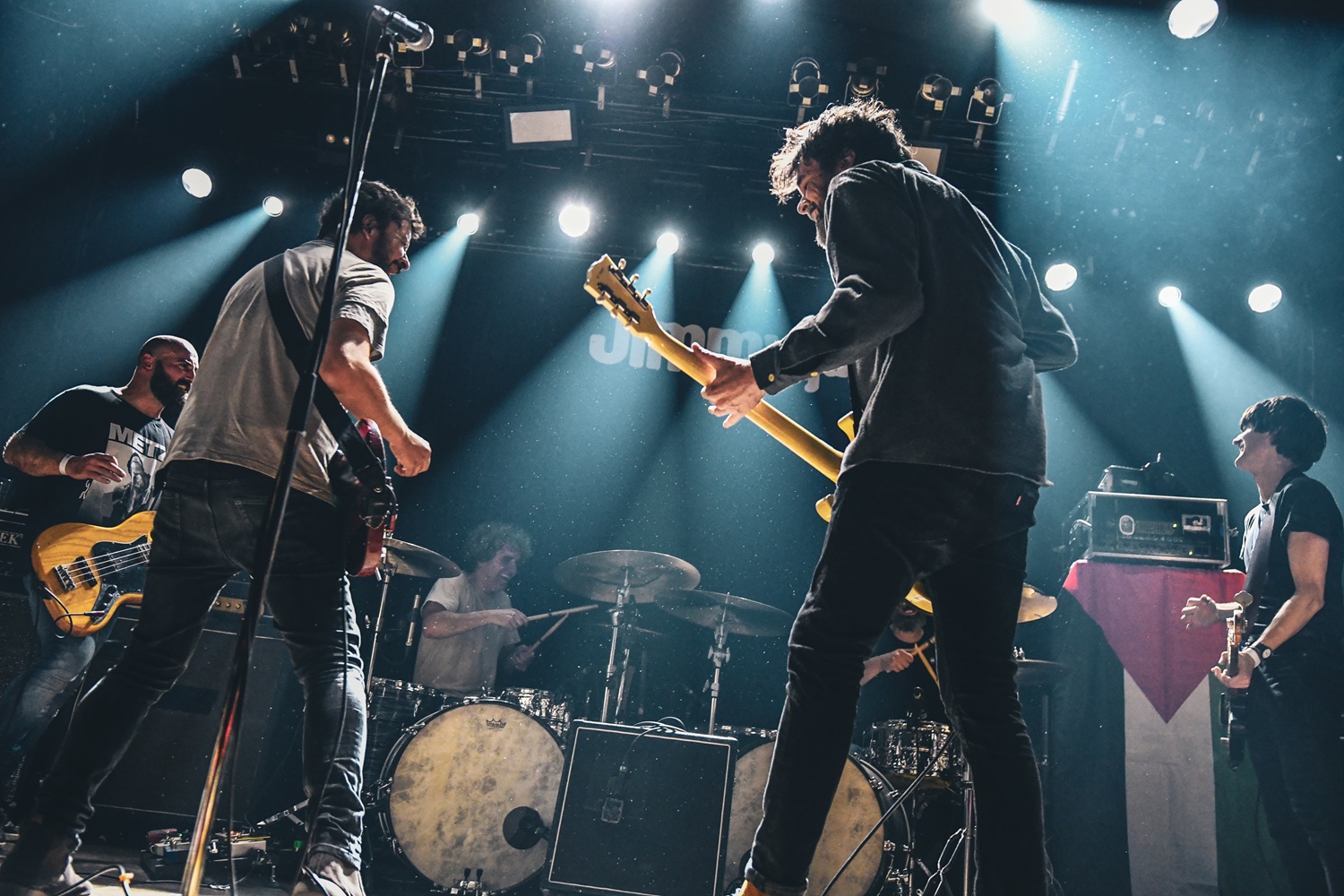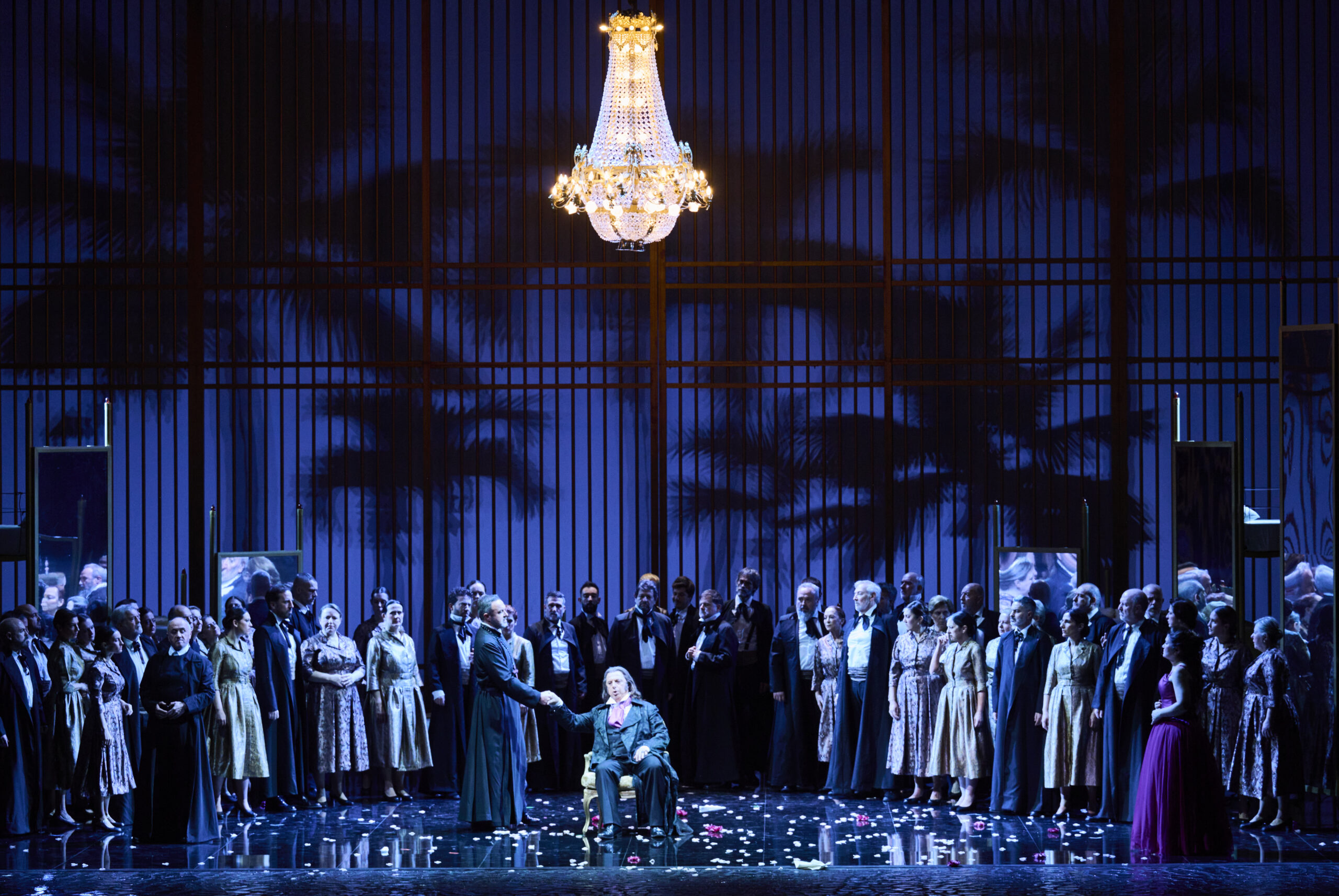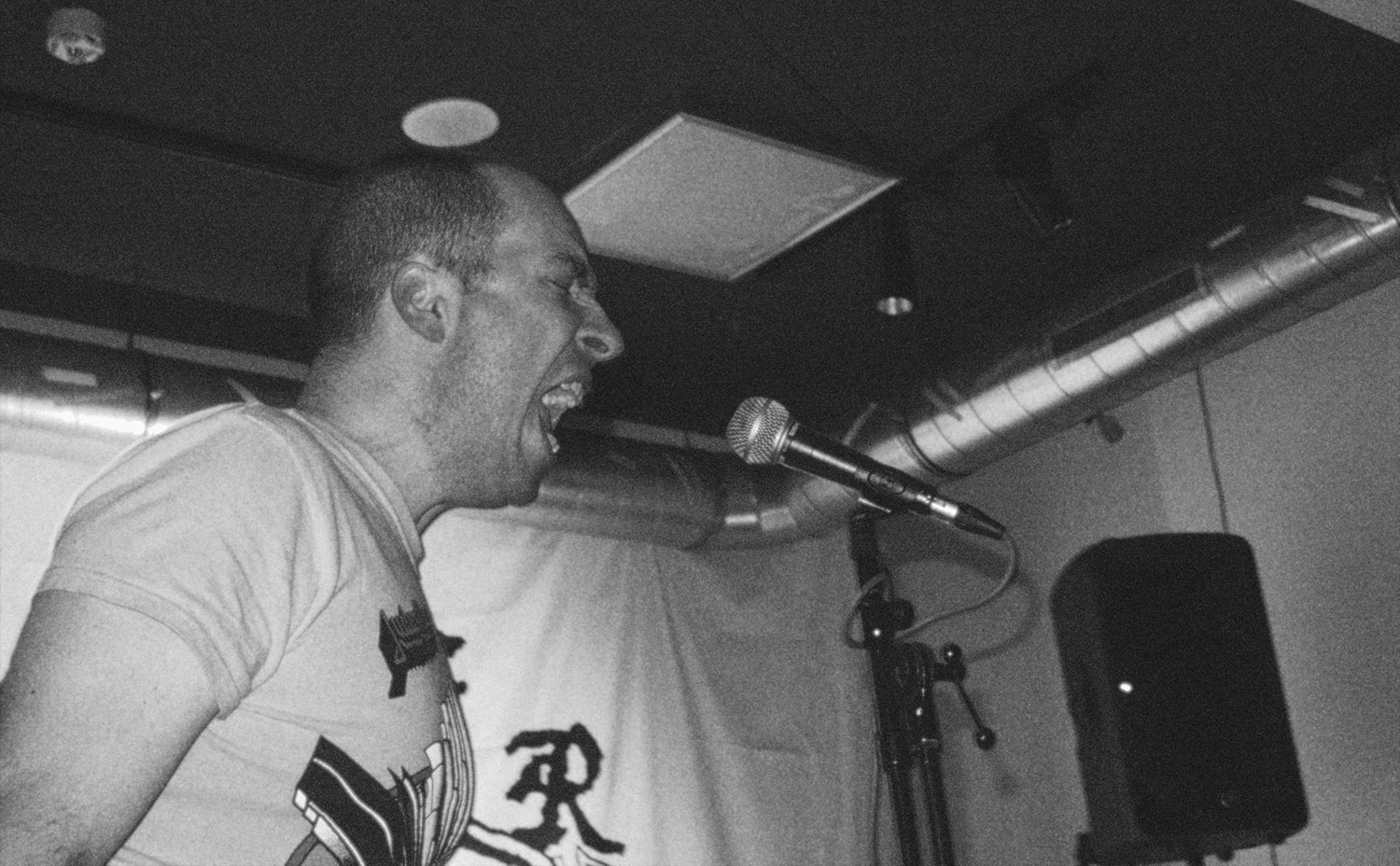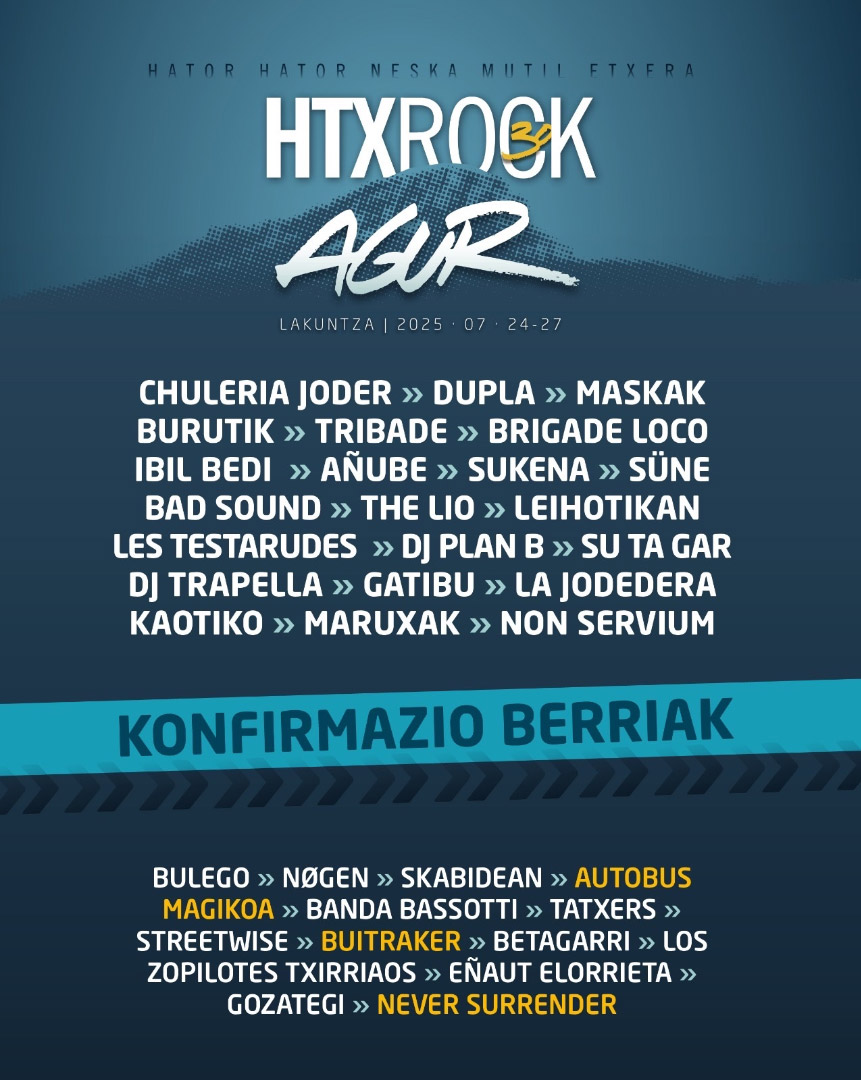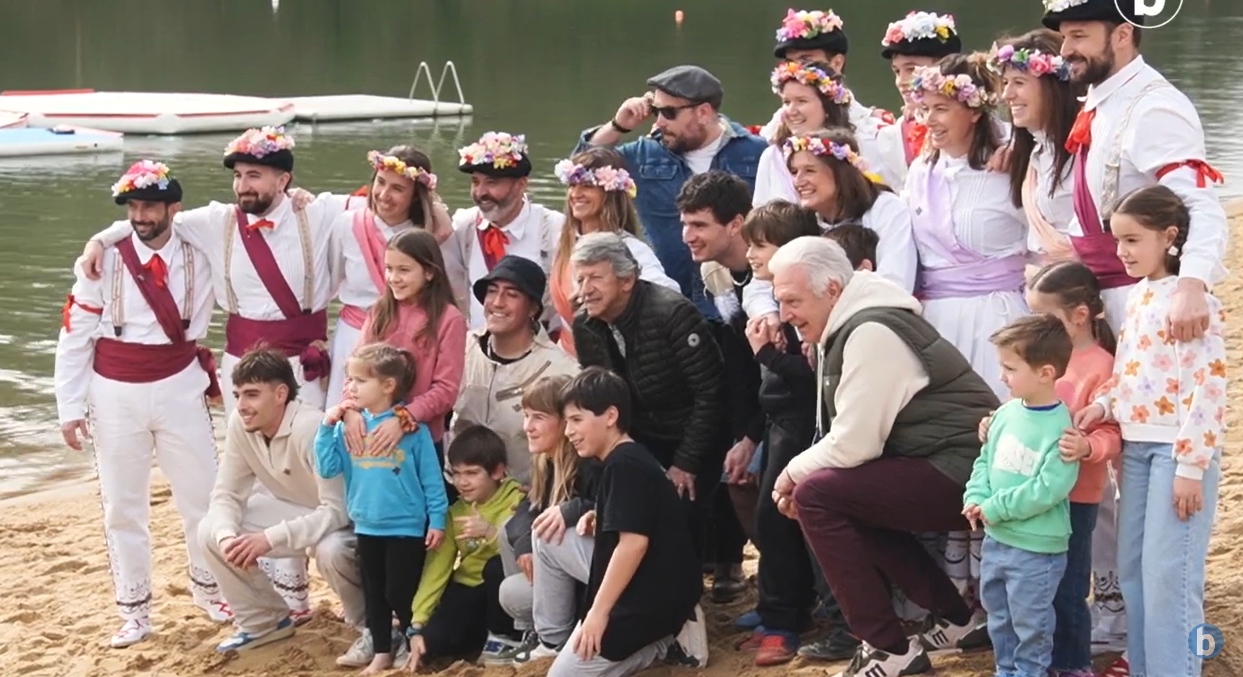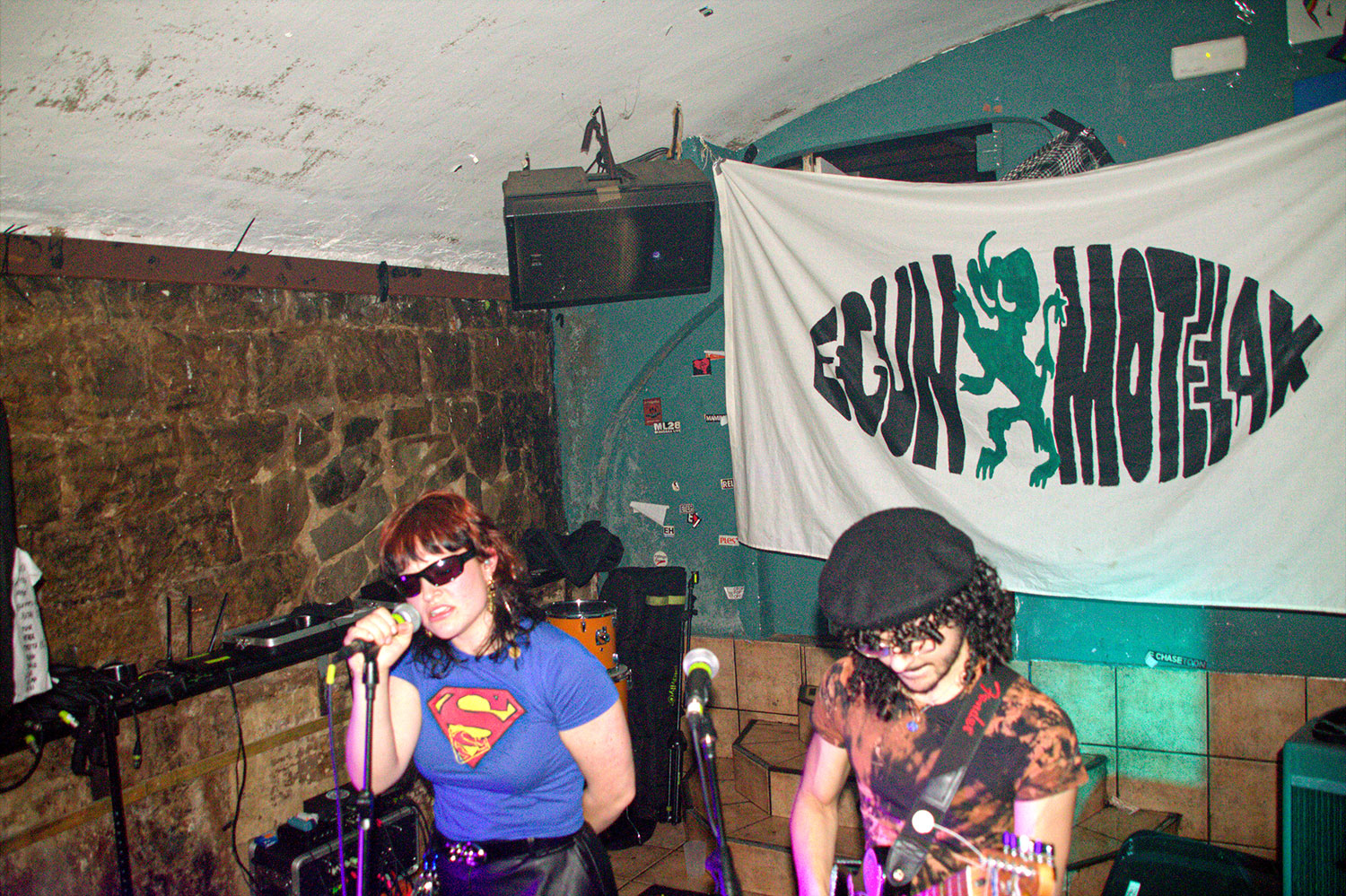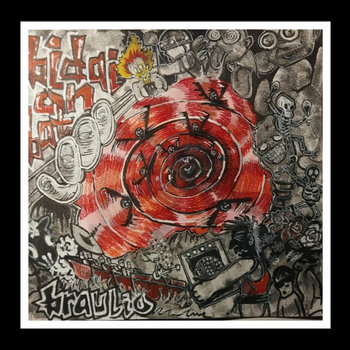“We are at the highest level of musical standardization ever”
- Esperanza is the second job of her career, balancing between industrial electronic bases and the most poppy melodies. Without reaching full experimentation, the work is composed of nine songs that want to flee from the conventional language of entertainment. The concerns and desires of those engaged in social transformation are perceived: loyalty to a tradition of struggle, an attempt to bring to the present – and to the future – the contribution of previous generations, impulse to give fire to everything and then to run away.

Jokin Azpiazu (Ermua, 1981) started in the music world by introducing a screwdriver between the strings of the electric guitar and experimenting with sound. Since then he has gone through various groups such as PAM, After Never or Occhi di Farfalla, and in 2017 he launched Dor, the most personal bet of his career, accompanied by Maialen Belaustegi's projections and the sound of Ander Barriuso. He relates the project to the echoes of his first experimental tests, as he then seeks something similar: “Find that place where sound and music come together.” It does not feel in full experimentation or in full convention. “I want people to know the musicality of songs, but at the same time I have never learned music, I don’t know how to compose, and I use that inability to do something else.”
In any case, the inability to fit in any of them is one of the great themes of his life. He is a sociologist, researcher, university professor and LGTB activist, among others. “I find it hard to find a place for every thing, because I don’t release anything. I always feel like I don't do anything right. But on the other hand, I was told that perhaps virtue is there. I try to bring to sociology a lot of things learned in music, learned in sociology to activism… Casually, I can’t stop making bridges from one side to the other.”
Somewhere I've read that Carlos intends to awaken discomfort. How uncomfortable are you talking about and why?
I wouldn't say I want to create discomfort 100 percent. But entertainment itself doesn't interest me: neither aesthetically, nor visually, nor in sound or in letters. Musicians – like anything else – have to move something. It can be joyful and satisfying, but never just entertaining. For example, The Police entertains me. For The Police tells me nothing – I think he has never told anyone anything. Music is for people who don't like it. I can listen to taste, but it will cover 1% of my needs. I need to move the music from one side to the other, put it in malalmania, give it energy, or depression… But I also don’t want to create an absolutely uncomfortable space in the direct ones, because there is a risk – as can happen – that people take a cane to finish without heeding it. That's my ambition: I don't care if somebody made a march in the middle of the concert, but if it became background music for those who are taking rods, I would die. I try aesthetically to find a medium: if a song seems very nice, I add noise; or if it is the opposite, a harmony, a logical progression.
What do you call entertainment? To that music that has no dimensions beyond reproducing the Convention itself?
Yeah, something like that. Recently, youtubers, instagramers and tiktokers have multiplied enormously, explaining to people how they make good singing, especially after the explosion of urban sounds and rags. They tell you that you have to have bulbs with certain frequencies, how to equalize the bass and compositional tips: the first refrain needs this, etc. They're humanity's last desperate effort, because soon an algorithm will do this work better than them. I'd like to avoid that: think I know how to make a song that works. And I still don't know, but every time I learn something new, I'm scared, if I don't finish applying that model to standardization. I am trying to translate this spirit into all areas, including direct ones. I know what can work, but I do not want to end by repeating the formula. We are at the highest level of standardization ever.
"That's my ambition: I don't care if someone made a march in the middle of the concert, but if it were the background music for those who are picking rods, I would die."
Do you mean the local scene or in general?
It's general, I've been hearing the same hype for five years. And in Euskal Herria, we've all thought that now it's very modern to use synthesizers, we've bought the same synth in the same place, and all songs have the same effect. However, the high level of standardization is not a purely aesthetic issue, but to see what people ask for their musical trajectory. It seems that we have all written the same letter to the Olentzero about our musical career. Sometimes it's terrible. It is also a matter of ignorance, because I do not control many of these new codes and scenes, and as a result I lose details. But it is clear that the clash between counterculture and government has blurred. Sometimes for good -- we've learned that punk sound doesn't necessarily make you counterculture -- but other times we take some very uncritical sounds. And of course, sounds can't be moralized, but we can think about what we're using and why.
.jpg)
If so, is it a gesture to escape this standardization not to upload the album to Spotify?
It's a little resistance. I don’t know how long it will last… Just like tobacco, you leave it, but you still fall again. It seems to me a catxondeo how hardly anyone doubts to upload songs to Spotify. How don't we talk about this? Does it progress automatically and ready? The young, veteran, politicized, non-politicized groups, what unites us? Spotyfy. It's hell. At the extremes we have all the information: the exploitation of the workers on the platform, the misery given to the musicians -- what else do we need? From a commercial point of view, I do not have to ask myself, I know, and if I wanted to live there I would have to think differently. OK. But no one should raise anything? I would say that in our case I have only heard of this in Ainara Le Gardo.
Let's talk about the record. You presented Esperanza as your most optimistic job.
Well, a little bit is a lie. I've spent half my life thinking that I want everybody to burn and the other half, thinking that the moment everything burns, I'll be scared and I'll run out. The world is very bad, and I sincerely believe that this is the time for revolutionary practice. We should burn everything, in all the ways it can take – it does not have to be by violence. It is not the time to replace tetrabrick with ecological tetrabrik, I am quite clear that everything should be thrown out and end capitalism once and for all. But these things have terrible consequences. At that tension, the disc moves.
José Esteban Muñoz has a queer review of Ernst Bloch's concept of hope. For Bloch, hope is a kind of timeline loop: we bring something from the past to the present to project it into the future. It is not a Christian hope, “everything will go well”, but to say that throughout history there are many antecedents that show that things can change when we intervene. Bringing past ideas to the present can generate praxis to transform the future. Muñoz seeks queer temporality and says that hope can be used to transform the present and not to stand still. Martin Bidaurre has a poem that relates hope with hope and is right, because it is one of the meanings of the term. Well, hope is worth not being in hope, which is an antihope.
"The world is very bad and I sincerely believe it is the time for revolutionary practice"
This album aims to regain political hope. Let's not say after the pandemic, when we've heard thousands of messages saying this will make us better people. I don't use that humanistic view of hope. It's not about recovering the good of humanity, but quite the opposite: creating something we don't yet know. José Val del Omar has a round sentence: “Faith, it is not believing what we did not see, it is creating what we do not see.” We recovered the past, not by nostalgia, but to know, for example, that in the 80’s strikes whole villages were placed in front of the capital, or that in 1936 the whole of Barcelona was collectivized, or that the Basques have had horizontal forms of organization that have worked for many years. These ideas we bring to the present to move things around.
Most of the letters on the album refer to the hope of a collective, even when they refer to sharpness. Individual rescues are not sought.
I sincerely believe that we cannot do it alone. Well, if you want to do a survival exercise, go on alone and you will reach the end of your day. But you can't fly anything if you don't leave the collective. Many say we need more strikes and fewer therapies… I think we need more strikes. Less therapy? I don't know, I think there are people who need therapy, that when they do it, they do it well, and they tell us. I am not against therapy, I am in favour of strike. Instead, I'm against individualization. Therapeutics and individualization are not synonyms, but today they are articulating like this and I do not like them. I think we have to find ourselves in order to advance those who are here and those who are not. If I appear on the disk, it appears in that direction.
Maite Mursego and raptor Trusty collaborate on two songs. How does the opportunity to work with them arise?
I've known Maite since I was 15, we're very friends, we've lived many adventures together, and it was inevitable to do something with her before or after. Trusty's thing is different: I know it from networks by chance. She is Madrid, she lives in Barcelona and has been under her roof for many years. I'm totally surprised: he sings letters with marica dyes, very explicit, but far from being pamphlets. It's very awkward, dark and nasty, but it also makes you want to keep listening. He sings not with common homosexual love, but with the massacres, a fervent Gerontophil. He's a friend of some friends, and when I decided I wanted a collaboration from him, I wrote him from Instagram. An hour after sending the song, he sent me the idea. I think it makes a good contrast and that that more nihilistic tone balances the tone of the song.
.jpg)
What is the “socialist paradise” mentioned in Ten times for you?
It is a song directed at the hope mentioned above. I say this in a moment: “When you turn the cold will not let us sleep.” Today we're in a very bad situation, but when you turn things on, you wake up and wake up, other senses wake up. And really, it's not that hard to know where the problem is: we know where we should put the stick, what is the machine to sabotage, and that will lead to a space of pleasure. In the song there is a joke to mock some very normative and heterosexual readings about socialism. For me, it's a Socialist paradise a wonderful place where anyone eats a penis, a happy one or whatever they want. That place where we eat souls, somehow. I demand pleasure, of course, but not hedonistic and individualistic pleasure. If we want to pass the door of capitalism to reach communism, in my case the libertarian, it is not for an epic, but for pleasure, because we know that we are going to live much better, we are going to enjoy much more, that everything is going to be much better. I want to live better and I fight for that.
The sky with water is probably the last song, the most poetic. It uses a more personal tone than others.
Yes, that song speaks of meaningless. Sometimes it seems to you that everything loses meaning, that there is no air in the sky, that you can't breathe. It takes a while, and then it goes, and it makes sense again, but as long as it lasts, you stay in a hole and for a moment there is no more than a hole. The song picks up the metaphor of the pool: you're in a pool, you can't get your head out of the water; it's at the same time a pool, it's not the sea, but you can't get your head out… it's the most personal and ancient lyrics, written at a hard time in life with the death of a friend.
The other songs have a more obvious political tone. For example, in Handia he says, “Whoever dreams of money dies.”
It comes from a paternal grandfather phrase. He was a communist, a nationalist and spent several years in jail. He said that he did not rely too much on those who always pursued the money. I think it is sometimes important to recover very basic ideas, and to say, for example, “do not trust the musicians who want to enrich, they are not good people”. I don’t care if they look like “malotes”, super LGTB friendly, or super nationalists. If you want to get rich, you're not good people. There are no good people who want to get rich.
"Be careful to justify anything by saying you're working-class. Dignity and class awareness are united"
In the new generations, especially in many of those who do what is called “urban music”, there is a common discourse in recent times: elections that can be considered contradictory are often justified as tolls to pay for music to live in dignity.
I don't judge people's wishes. But to think that behind the working class there is everything worth it… Look, I grew up in a working family, my country is entirely working-class, and I've always been very clear that survival and ethics don't have to be contradictory. Being a musician is very difficult, and I understand that you pay tolls – what I am going to say to you at university. But that does not justify everything. Despite gravity, you can't do anything to move forward. Sign, for example, an agreement with a certain brand of beverages or clothing, advertising them… forgive, but not. People have to do a lot of hard things to survive, a lot I don't like and I don't judge them. But be careful to justify anything by saying you're working-class. Dignity and class awareness are united.
The album includes the version of the song Eskoria by RIP. Why that tribute?
I admire a lot of RIP for different reasons. To begin with, they were the most passionate group of that first generation, along with Vomito. Nobody had that weed, they put all my hairs upright. They are my most rescuable RRV group. I don't know if anyone has achieved so much with so few songs: they have four songs on the album shared with Escorbuto and another fourteen Don't move! on disk. Then we've known some models, but with very few songs they were and they're legend. But above all, I admire your trajectory. They have a very hard story as a group -- they didn't make a ridiculous return; they came together to play in important events for concrete movements: against AIDS, at a Jarras Gathering -- I mean, they also did well. If you compare it to the eye-catching drift of others from RRV, the RIP is wonderful: they kept their political commitment to the end. If someone deserved my tribute, it was them.
Bizitza eztia
Verde Prato
Plan B Records, 2024
--------------------------------------------------------------
Ousmane Sembène zinemagile senegaldar ospetsuari galdetu zioten ea bere pelikulak Europan ulertzen ote ziren. Erantzuna, epikoa: “Izan gaitezen... [+]
Inoren Ero Ni + Lisabö
Noiz: martxoaren 14an.
Non: Gasteizko Jimmy Jazz aretoan.
----------------------------------------------------
Izotz-arriskuaren seinalea autoko pantailatxoan. Urkiola, bere mendilerro eta baso. Kontzertuetara bideko ohiko errituala: Inoren... [+]
FITXA
Zer: OLBEk antolatutako Gaetano Donizettiren ‘La favorite’ opera.
Nork: Euskadiko Orkestra Sinfonikoak (zuzendaria: Riccardo Frizza) eta Bilboko Operaren Abesbatzak (zuzendaria: Boris Dujin).
Noiz: otsailaren 18an.
Non: Bilboko Euskalduna Jauregian.
Olor
Noiz: martxoaren 9an.
Non: Bilboko Sarean espazioan.
---------------------------------------------------------
Esperantza. iz. Nahi edo desiratzen dena gertatuko delako edo lortuko delako uste ona.
Izen horixe jarri zion Jokin Azpiazu Carballo Olor ermuarrak bere... [+]
22 talde gehiago iragarri dituzte Lakuntzan uztailean izanen den HatortxuRockerako: Bad Sound, Dupla, Su Ta Gar, Chuleria Joder!, Brigade Loco, Leihotikan, Burutik, Tribade, Maskak, Les Testarudes, Non Servium, Añube, Dj Plan B, Gatibu, DJ Trapella, La Jodedera, Süne,... [+]
Bidea da helmuga
Kokein
Balaunka, 2024
--------------------------------------------------
Eibarko rock talde beterano hau familia oso desberdinetako lagunek osatu zuten aspaldi eta ia fisurarik gabe hamarkadatan eutsi dio. Izan ditu atsedenak, gorputzak hala eskatu... [+]
Elgarrekin izena du Duplak egin duen aurtengo abestiak eta Senpereko lakuan grabatu zuten bideoklipa. Dantzari, guraso zein umeen artean azaldu ziren Pantxoa eta Peio ere. Bideoklipa laugarrengo saiakeran egin zen.
Duela 150 urte, 1875eko martxoaren 7an jaio zen Maurice Ravel musikagile eta konpositorea, Ziburun. Mundu mailan ospetsu dira haren lanak, bereziki Boleroa. Sarri aipatzen da Parisen bizi izan zela, kontserbatorioan ikasi zuela aro berri bateko irakasleekin, munduko txoko... [+]
Zuloa
Merina gris
Sonido Muchacho, 2025
-------------------------------------------------------
Euskal Herrian ez da orain arte horrelako musika elektronikorik egin. Esango nuke Merina Grisek historian euskaraz egin den elektronika eta hyperpop diskorik landuena egin... [+]
Gazteagotan baino lotsa handiagoa dauka, baina horrek ez dio saltsa askotan ibiltzeko gogoa kentzen Leire Zabalza Santestebani (Iruñea, 1990). Beste gauza askoren artean, Motxila 21 musika taldeko kidea da. Nabarmendu du musika gauza asko aldarrikatzeko bide izan... [+]
Bidai on bat
Braulio
Autoekoizpena, 2024
-----------------------------------------------------
Nik ez nioke talde bati Braulio izena jarriko; eta seguruenik inork gutxik hasiko luke lan bat sei minutuko iraupena duen kanta batekin. Baina hauei parra die eta horri esker... [+]













